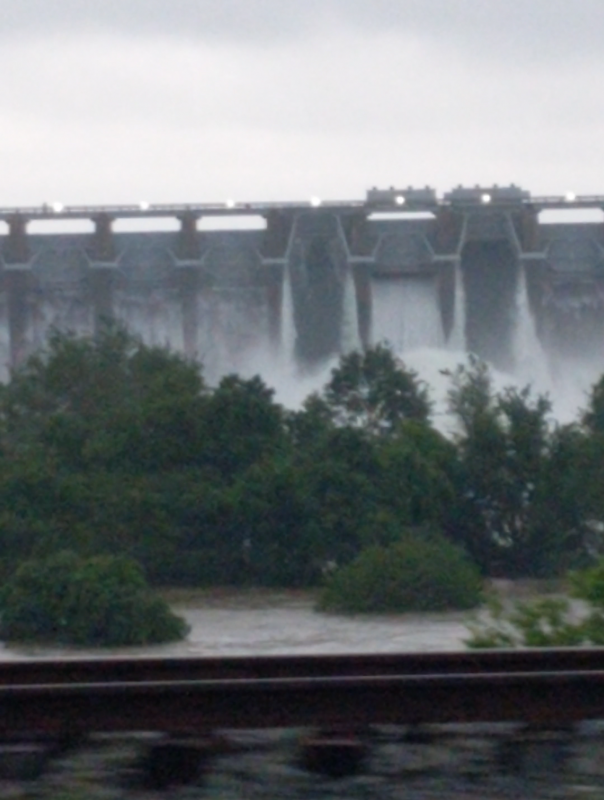By Michelle Armstrong
A few months ago I was fishing a tournament on Toledo Bend in Texas. We experienced some wicked fast and furious rainstorms. Two days before the tournament, roads were closed due to flooding and I witnessed for the first time, water take over a bridge. I realized then and there, one should never fool with Mother Nature. I also asked myself, “Self, what is this going to do to the fish?”. Most of the area’s I had fished in practice were underwater on tournament day. Brush that I had pitched in were gone, and I was able to maneuver the boat in to places that was ground the day before. I made a few adjustments and was able to manage top ten finish.
Fast forward to last month. Back on my home lakes I witnessed yet again, water cresting the banks. My husband and I, along with many others, stopped at the Cowan’s Ford Dam to watch as water spilled over the top of the dam because the turbines couldn’t turn fast enough to handle the speed of the flowing waters.
So again, what happens to the fishing during flooding? Typically, lakes don’t flood. Lakes have streams and rivers as outlets to help them drain. However, the flooding of the rivers affect the lakes water levels. The increased current caused by the fast flowing water pushes Plankton, Bait, and Bass right toward the banks. High waters means more cover being flooded producing brand new hiding places for Bass to hang out.
Just like in Texas, the high waters here can equal paydirt! Be loud… Thump, pop, spin, vibrate, rattle, wiggle and roll. Do whatever it takes to get the attention of a Bass. They are in new territory, using more energy to swim the fast waters, and they are ready to eat. If you think you are fishing shallow, go shallower. You cannot fish shallow enough during high waters.
Just like any other fishing day, fish the moment. In these conditions, I like to fish with topwater most of the day. Remember, the Bass are super shallow and haven’t adjusted to their surroundings yet. They are pretty likely to hit something making noise above their head all day. I prefer frogs or Pop Rs. During off times when they aren’t biting on top, I’ll switch to a spinner bait that has blades that hit each other as they spin.
Flooding postspawn can actually help with the fish population by ensuring fry a better survival rate. The little fellows are less likely to get left behind by retreating water levels. Some fisherman claim that the best fishing (for numbers) comes the year after a flood.
Get loud, go shallow, and go catch a bunch of fish.

